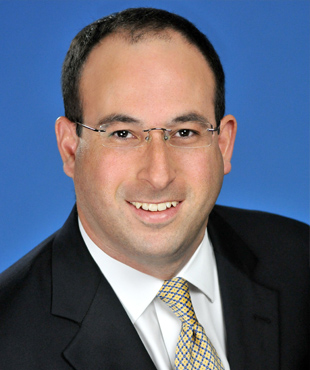Featured Expert Contributor on Civil Justice/Class Actions


Frank Cruz-Alvarez is a partner, and Sofia M. Perla is an associate, with Shook, Hardy & Bacon L.L.P. in the firm’s Miami, FL office.
***
Earlier this month, the U.S. Supreme Court released its opinion in the consolidated cases ZF Automotive US, Inc., v. Luxshare, Ltd. and Alixpartners, LLP v. The Fund for Protection of Investors’ Rights in Foreign States. In just seventeen pages, the Court’s opinion undoubtedly takes the place of Intel Corp. v. Advanced Micro Devices, Inc. as the seminal case interpreting Section 1782 of the U.S. Code by categorically restricting the applicability of what was a foreign litigant’s most powerful discovery weapon against a U.S. entity in a foreign proceeding.
In pertinent part, Section 1782 gives a district court discretion to order testimony or the production of evidence for “use in a proceeding in a foreign or international tribunal,” so long as the request is made by the foreign or international tribunal or “any interested person.” The Supreme Court, in its 2004 Intel opinion interpreting the same section, distilled the question of whether a court should grant a § 1782 request to a two-step analysis: (1) whether the statutory requirements of § 1782 are met, and (2) whether discretionary factors weigh in favor of granting the request. The three statutory requirements of § 1782 are (1) that the person from whom discovery is sought resides or is found in the district court’s jurisdiction, (2) the discovery is for use in a proceeding before a foreign or international tribunal, and (3) the application is made by a foreign or international tribunal or a foreign or international interested person.
The Court also listed discretionary factors to guide district courts in determining, in their discretion, whether to grant a § 1782 request. These include the nature and character of the foreign tribunal, whether a party or a non-party is requesting the evidence, whether the request is an attempt to circumvent foreign discovery restrictions or policies, and whether the request is unduly intrusive or burdensome. The Court focused most of its discussion on the second and third statutory requirements of § 1782, specifically who or what qualified, or did not qualify, as a tribunal and an interested party. The opinion rendered a broad interpretation of both terms, characterizing a tribunal as being a “first-instance decision maker” and not requiring litigant status for interested persons. This was a watershed moment in § 1782 litigation. Because use of the statute was not limited to a specific type of litigant, or a specific forum, governmental tribunals and private arbitrators alike took advantage of the ruling. Section 1782 quickly became heavily relied on in private foreign arbitrations. Section 1782 can grant full U.S.-style discovery to a foreign litigant without any reciprocity in favor of the U.S. entity; and U.S.-style discovery is broader than discovery in most other countries. So, for a foreign litigant, the statute provides a strong discovery weapon against U.S. entities that the same U.S. entities cannot similarly enjoy.
The popularity of § 1782 requests in private arbitration continued upwards for nearly two decades until the recent release of the ZF Automotive opinion, which restricts the use of § 1782 to proceedings only in governmental or intergovernmental adjudicative bodies and categorically denies private foreign arbitrators access to § 1782’s powerful discovery weapon. The opinion elevated what was a discretionary factor under Intel—the nature and character of the foreign tribunal—to a statutory requirement that must be satisfied to grant a § 1782 request. In order to take advantage of § 1782, the nature and character of the foreign tribunal must be governmental or intergovernmental. The Court reasoned that the “animating purpose” of § 1782 is comity and “enlisting district courts to assist private bodies would not serve that end.”
Looking to the syntax and the definition and connotation of “foreign tribunal” and the surrounding words, the Court articulated that a foreign tribunal is a tribunal belonging to a foreign nation rather than a tribunal that is simply located in a foreign nation. To belong to a foreign nation, the tribunal must possess sovereign authority conferred by the nation. Similarly, an “international tribunal” possesses sovereign authority conferred by several or multiple nations. When the tribunal is an ad hoc panel, the relevant question to determine whether the tribunal is properly governmental is whether the nation or nations intended the panel to exercise governmental authority. In contrast, in private arbitration, the panel derives its authority from the parties’ consent to arbitrate. This opinion rewrites the statutory requirements under § 1782, requiring district courts to determine whether the foreign or international tribunal where the evidence will be presented enjoys sovereign authority conferred by one or several nations, shifting the focus of the analysis from who made the § 1782 request to where the evidence sought in the § 1782 request would be used. Unquestionably, this decision will have a dramatic impact in private foreign arbitration.
Categorically restricting the applicability of § 1782 is not novel, however. Prior to the 2004 Intel decision, circuit courts were split on whether § 1782 could be employed by parties engaged in foreign arbitration before private adjudicatory bodies. The Second and Fifth Circuits looked to the legislative history and historical use of § 1782 to determine that Congress intended a broad enough definition of foreign or international tribunal to include quasi-judicial agencies, but not so broad as to include private commercial arbitrations. Indeed, in Intel, Justice Breyer dissented and proposed categorically limiting § 1782, including suggesting that district courts to look to the foreign entity’s view of a foreign “tribunal” which possesses “few tribunal-like characteristics, so that the applicability of the statute’s word “tribunal” is in serious doubt.”
Thus, the dispute over the scope of § 1782’s use began more than two decades ago. Whether private adjudicatory bodies fall within § 1782 was not expressly resolved by the Court’s opinion in Intel. The Court’s recent ZF Automotive opinion does answer the question—no, private adjudicatory bodies do not fall within § 1782, leveling the playing field in private foreign arbitration between U.S. and foreign entities.
